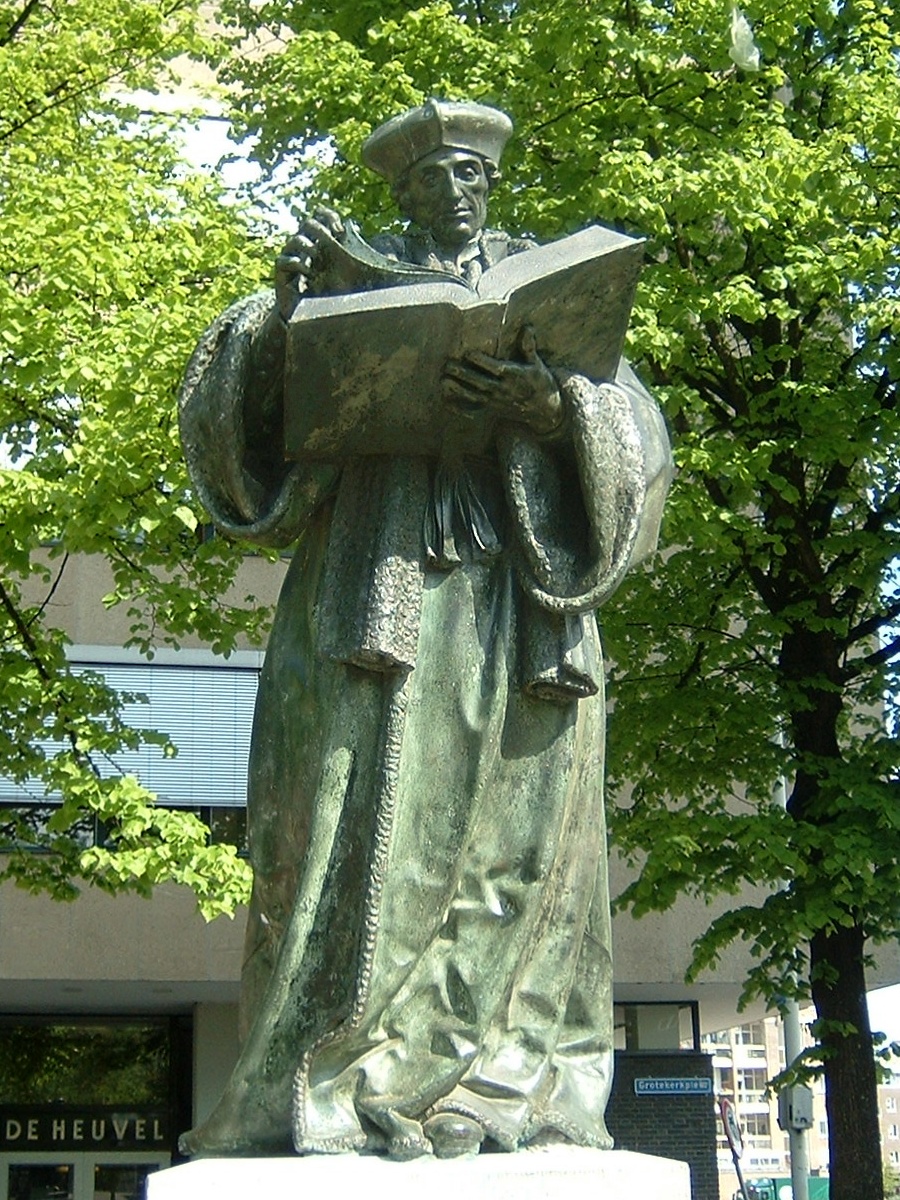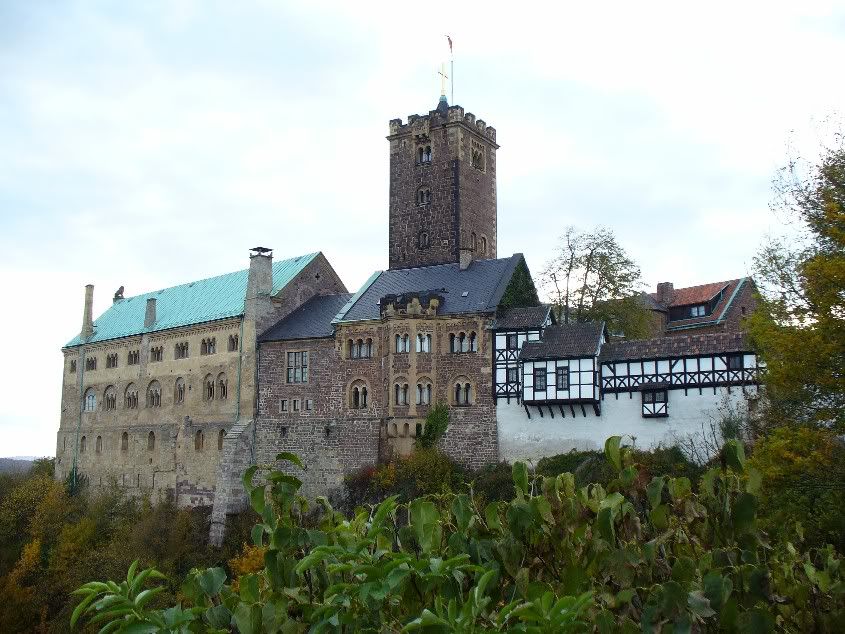(9:30PM EST – promoted by Nightprowlkitty)

Previous episodes:
We left off at Erasmus Reinhold, creator of the Prutenic Tables, based on the work of Nicolaus Copernicus, which were used to create the Gregorian calendar.
Reinhold’s Master of Arts degree in astronomy and astrophysics was earned at Wittenberg in 1535, as a student of Jacob Milich.
Not much is known of Milich. Plenty is known about his academic supervisors.
 Milich grew up in Freiburg-im-Breisgau, one of the five classical university towns in Germany, the others being Göttingen, Heidelberg, Marburg, and Tübingen. He earned a medical degree at Albert-Ludwigs-Universität Freiburg and became a mathematics professor at Wittenberg. He is most famous for his commentary on Pliny the Elder and as an educator and administrator at Wittenberg.
Milich grew up in Freiburg-im-Breisgau, one of the five classical university towns in Germany, the others being Göttingen, Heidelberg, Marburg, and Tübingen. He earned a medical degree at Albert-Ludwigs-Universität Freiburg and became a mathematics professor at Wittenberg. He is most famous for his commentary on Pliny the Elder and as an educator and administrator at Wittenberg.
Milichius Crater is one of the dome craters in the image to the right, the one a little northwest of center. That’s Hortensius to the south and Pi to the west. These craters are to the west of Copernicus Crater, while Reinhold Crater is to the south of it. In the image above the fold, Copernicus Crater is in the center, with Reinhold and Reinhold B (the smaller, shallower flooded crater) to the right and a little up. Milichius is down towards the lower right corner, which is west of Copernicus from our perspective. An interactive view of the area is available here.
Milich’s advisors for his Master of Liberal Arts in 1520 and his medical degree in 1524 were Desiderius Erasmus and Ulrich Zasius.
Zasius was a jurist who received his doctorate at Freiberg in 1501 after a first career as a politician and director of the Latin school in Freiberg. While he was studying the law, he taught classes in rhetoric and poetry and kept his political career going on the side. He applied Humanism to the Law and engaged in vigorous discussions on the doctrines of that guy…what’s his name…Martin Luther, which he at first favored.
After 1521 he was a zealous opponent of Luther and died a firm adherent of the Roman Catholic faith.
We do not know the name of his dissertation or who his adviser was.
To place him in the correct setting, here’s this about Humanism from wikipedia:

The Humanists likewise recognize humans as born not with a burden of inherited sin due to their ancestry but with potential for both good and evil which will develop in this life as their characters are formed. The Humanists therefore reject Calvinistic predestination, and understandably therefore arouse the hostility of Protestant fundamentalists.
Renaissance humanists believed that the liberal arts (music, art, grammar, rhetoric, oratory, history, poetry, using classical texts, and the studies of all of the above) should be practiced by all levels of wealth. They also approved of self, human worth and individual dignity.
Noteworthy humanist scholars from this period include the Dutch theologian Erasmus, the English author (and Roman Catholic saint) Thomas More, the French writer François Rabelais, the Italian poet Francesco Petrarch and the Italian scholar Giovanni Pico della Mirandola.
Desiderius Erasmus Roterodamus is not just “an” Erasmus. He is “the” Erasmus, the “Prince of the Humanists.” He created new Latin and Greek versions of the New Testament inculcating his humanist beliefs, versions which raised questions that were central to both the Protestant Reformation and the Catholic Counter-Reformation.
 While visiting his good friend Thomas More and having just come from some time in Rome, he wrote The Praise of Folly, one of the most influential works of Western literature, since it became extremely popular and included a clear statement of Christian ideals. Leo X thought it was great snark! It was written in 1509, eight years before the Reformation.
While visiting his good friend Thomas More and having just come from some time in Rome, he wrote The Praise of Folly, one of the most influential works of Western literature, since it became extremely popular and included a clear statement of Christian ideals. Leo X thought it was great snark! It was written in 1509, eight years before the Reformation.
In a visit to Tournehem, he wrote Handbook of a Christian Knight , “an appeal on Christians to act in accordance with the Christian faith rather than merely performing the necessary rites,” which also became hugely influential. Additional texts included one on civilizing children, one on rhetoric, and probably the anonymous Julius Excluded from Heaven, which includes a section where Pope Julius II tries to have St. Peter excommunicated because he won’t allow Julius passage into Heaven. Luther loved it:
so learned, and so ingenious, that is, so entirely Erastian, that it makes the reader laugh at the vices of the church, over which every true Christian ought rather to groan.
Erasmus remained neutral with respect to Luther’s criticism of the Church, earning him attack from both sides, who believed neutrality was not possible in this matter.

I detest dissension because it goes both against the teachings of Christ and against a secret inclination of nature. I doubt that either side in the dispute can be suppressed without grave loss.
–Desiderius Erasmus
Erasmus did eventually write in opposition to Luther, lampooning Luther’s idea of free will. Luther attacked Erasmus and his followers as not being Christians. Yada, yada, yada. Erasmus believed in the freedom of choice over free will.
In the Counter-Reformation, Erasmus was attacked as having
laid the egg that hatched the Reformation.
All of his works were prohibited by Pope Paul IV.
Erasmus was educated a school run by the Brethren of the Common Life at the time of the plague, which took the lives of his parents. He was ordained a Catholic priest, became secretary of Henry of Bergen, bishop of Cambray, and received his theological degree from the Collège de Montaigu in Paris, at the dispensation of Pope Leo X.
Therein lies the next leg of our story.

13 comments
Skip to comment form
Author
…but they were 38 rather important years in the history of Western thought.
My family came from this area of Germany (between Göttingen and Erfurt) and I love reading anything about its history. And that is a fascinating time in history. I’ve been to the area once researching my own family history.
Here’s a picture I took of Wartburg Castle in Eisenach, where Luther went to stay after he was excommunicated:

Author
I’m not sure how the Reformation impacts Tuesday’s vote, but one never knows. There is anti-greed coming in the next installment(s?).